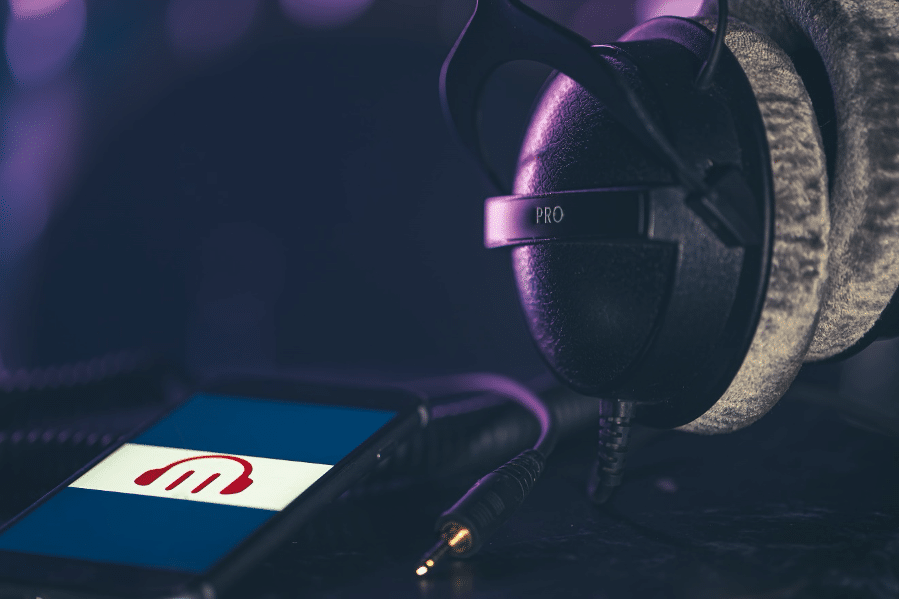In a world dominated by streaming services, we’ve grown used to the idea that our music is just a tap away, instant access, anytime, anywhere. But if you’ve ever leaped from Spotify to Apple Music, or tried switching from YouTube Music to Amazon Music, you’ve probably encountered some unexpected friction. Oddly enough, what should be a simple change of apps feels more like a breakup. Why? It’s not only about missing features or unfamiliar app interfaces, but also runs deeper. It’s about emotional loyalty, unseen data barriers, and the blurry lines around what we truly “own” in the digital age.
Fortunately, music services like FreeYourMusic are stepping in, making it far less painful to transfer playlists and bring your carefully curated ones along for the ride.
The Illusion of Digital Ownership
Streaming services offer us convenience, but that sense of freedom is more fragile than it looks. Previously, owning music meant holding physical copies, CDs, vinyl, or even downloaded MP3s. Now? We’re essentially renting our music through monthly subscriptions. Our playlists, album collections, and listening histories are deeply personal, but they’re also tied down, tethered to one platform.
This raises a fundamental question: do we genuinely own our digital music libraries, or are we just long-term borrowers?
As soon as you start thinking about switching to another platform, you’re reminded of what you’ll lose: those songs you saved over the years, the mood-based playlists, the algorithm that “knows” you. This looming sense of loss is enough for many to stay put, even if they’re unhappy with the current service.
Emotional Attachment and Friction
Music is personal. It’s not just background noise; it’s often woven into our life’s most memorable moments. That playlist you made after a tough breakup, the album that defined your senior year, or the soundtrack you played on loop during a road trip, these aren’t just files. They carry emotional weight.
So, when you’re asked to leave all that behind? It’s not just a technical decision. It feels like starting over, as if you’re erasing part of your identity.
Even when another service has better features or pricing, that emotional tie-in keeps people rooted. The hesitation isn’t only about technical effort; it’s about not wanting to let go of a part of yourself.
The Technical Barriers Hidden in Plain Sight
The structure behind streaming platforms makes switching unnecessarily difficult. Each platform keeps your data, liked songs, listening history, followed artists, and personal playlists in its proprietary format. That means your preferences are effectively locked up, and there’s no straightforward way to export or import them elsewhere.
Even when you manage to download your data, it doesn’t come in a usable format. You might get a text file or spreadsheet, but rebuilding your entire music experience manually? That’s enough to discourage even the most determined listener.
What’s left is a digital version of Stockholm syndrome; users remain loyal, not because they love the service, but because the alternative feels too much work and emotional upheaval.
Cross-Platform Solutions That Break the Chain
Thankfully, there are tools out there that are challenging this system. One standout is FreeYourMusic. It bridges the gap between platforms, letting you transfer playlists, liked tracks, and more from Spotify to Apple Music, YouTube Music, Amazon Music, and beyond, without starting from scratch.
Simplifying what was once a frustrating and tedious process puts control back in the user’s hands. Suddenly, you’re no longer choosing a service because you’re stuck with it. You’re choosing it because it works for you.
And that’s powerful.
Why This Matters for the Future of Digital Consumption
This isn’t only about music. What we’re witnessing is a larger trend across the entire digital landscape. Our personal data, emails, contacts, viewing histories, and business assets are increasingly locked into isolated ecosystems.
The bigger conversation here is about data portability. If the future is digital, the right to carry your digital footprint across platforms must become a core consumer right.
Until companies make these transitions smoother and more transparent, tools like FreeYourMusic will continue to be the stopgap, giving users more autonomy in a system that often feels one-sided.
Statistical Snapshot: Streaming Platform Retention vs. Switching Rates
| Metric | Percentage |
| Users who feel “emotionally attached” to their playlists | 68% |
| Users who would switch if the transfer were easier | 61% |
| Users are unaware that playlist transfer is possible | 42% |
| Users who’ve tried switching and given up midway | 29% |
| Users using two or more streaming services simultaneously | 18% |

FAQs
Q1: Why is switching music platforms so hard?
Because your entire music experience, library, playlists, and preferences are tightly integrated with one app. That makes moving both technically tricky and emotionally tough.
Q2: Can I transfer everything to a new platform?
With tools like FreeYourMusic, you can share playlists, saved songs, and in some cases, your listening history across major platforms.
Q3: Will I lose any songs when transferring?
It’s possible some tracks may not exist on the new service, but most modern transfer tools do a good job of matching songs and albums as closely as possible.
Q4: Is it legal to transfer my playlists?
Absolutely. You’re not moving copyrighted music files, just metadata like song titles and playlists belonging to you as a user.
Q5: Do other apps make this easier?
Some offer limited import tools, like YouTube Music and Amazon Music, but they’re often incomplete or unreliable without the help of third-party tools like FreeYourMusic.
Conclusion
In the era of convenience, our favorite music platforms often come with invisible strings. The emotional and technical burdens of switching between streaming services like Spotify and Apple Music reveal a deeper issue about digital ownership and autonomy. But with tools like FreeYourMusic, users no longer have to feel trapped. You can regain control, keep your music library, and choose the service that fits you best, without starting from scratch.
Surfer: https://app.surferseo.com/drafts/s/RWGBBHMSD7oGjg-kSm0Ud5ZuA5X7Xbr3
Plagiarism report: https://i.ibb.co/qM5Jc3vd/image.png

